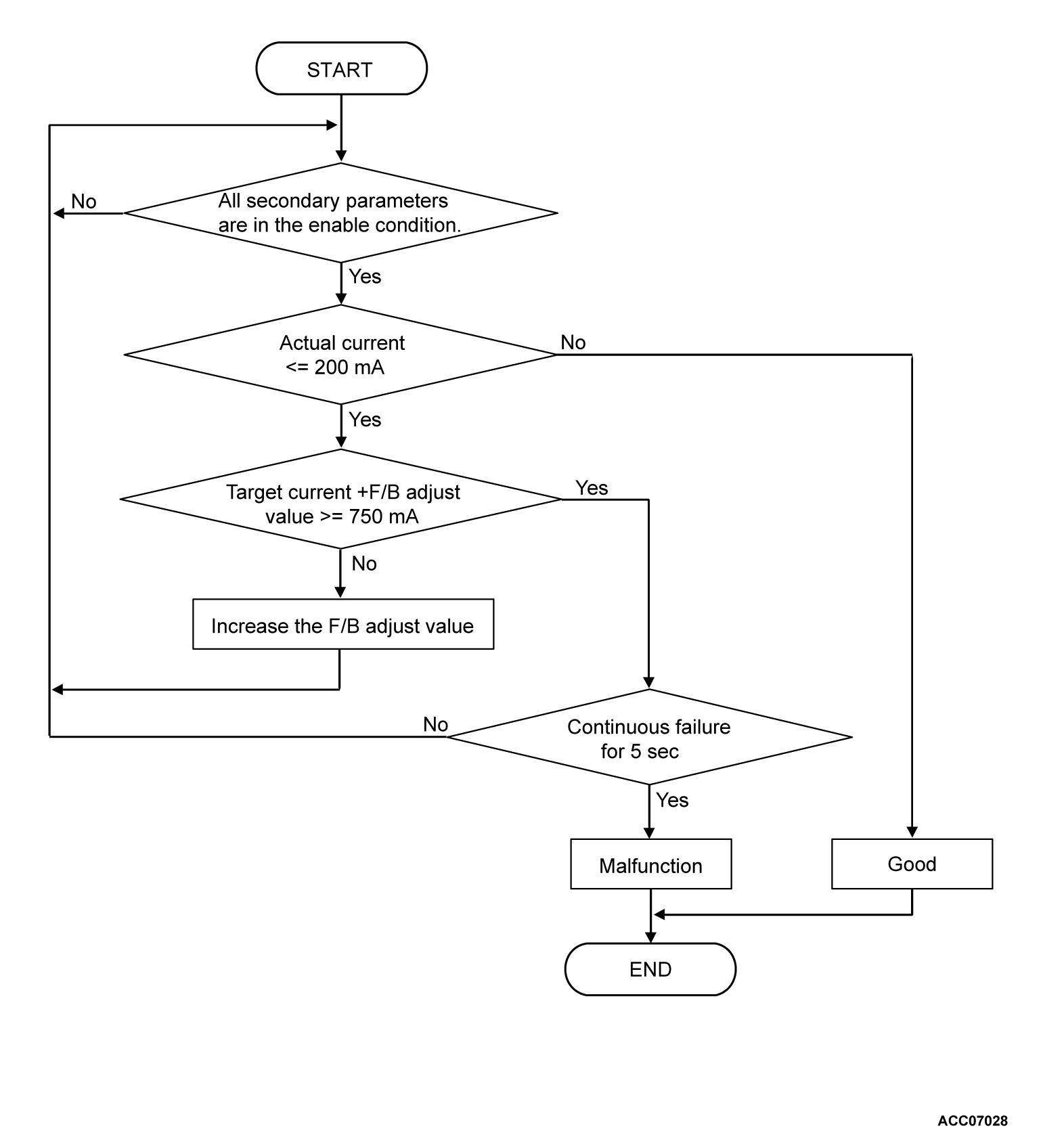DTC P2763: Malfunction of the Lockup Solenoid Valve (open circuit / short to power supply)
DIAGNOSTIC FUNCTION
The TCM monitors the lock-up solenoid valve circuit for open or short to power supply.
DESCRIPTIONS OF MONITOR METHODS
- Owing to open circuit or short to power supply, less current than predetermined flows into the lockup solenoid valve drive circuit.
MONITOR EXECUTION
- Continuous
MONITOR EXECUTION CONDITIONS (OTHER MONITOR AND SENSOR)
Other Monitor (There is no temporary DTC stored in memory for the item monitored below)
- Not applicable
Sensor (The sensor below is determined to be normal)
- Not applicable
DTC SET CONDITIONS
Check Conditions
- Voltage of battery: 10 volts or more
- Voltage of battery: 16.5 volts or less
Judgment Criteria
- All the conditions listed below remain for 5 seconds.
- The lockup solenoid valve command current is 750 mA or more.
- The lockup solenoid valve current, which the TCM monitors, is 200 mA or less.
OBD-II DRIVE CYCLE PATTERN
Ignition switch: "ON" position (start the engine and keep it for 10 seconds or more)
PROBABLE CAUSES
- Malfunction of the valve body assembly (Defective lockup solenoid valve)
- Damaged wiring harness and connectors
- Malfunction of TCM
DIAGNOSIS
STEP 1. Check the following connector.
- CVT assembly connector
- TCM connector
Check the terminals for a contact status problem and internal short circuit.
Is the check result normal?
 Repair the defective connector(s).
Repair the defective connector(s).STEP 2. Check for open circuit or short to power supply in LULS line between the CVT assembly connector and the TCM connector.
STEP 3. Lockup solenoid valve check.
![[Previous]](../../../buttons/fprev.png)
![[Next]](../../../buttons/fnext.png)


